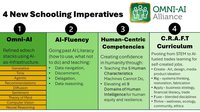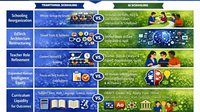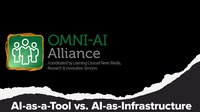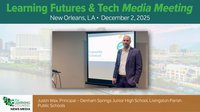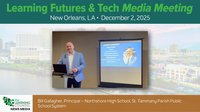Schools today are challenged by a variety of issues—regional staffing shortages, increased volume of requests, seasonal spikes in student referrals—to name a few. No matter the issue, the result is the same: despite best efforts, too many students are not being evaluated in a timely manner and educators are not receiving the data they need to support educational planning.
The evaluation process includes the administration of formal and informal assessments, but also involves student observations, parent/teacher interviews, and more. Assessments are a critical part of the evaluation process. Dr. Geremy Grant, a nationally certified school psychologist and clinical assessment support expert at Riverside Insights, writes in a March, 2022 GettingSmart post:
“It’s a nationwide problem, as these assessments for special education virtually came to a halt when the pandemic struck in March 2020, and didn’t resume until several months later. About 73 percent of school districts noted that the pandemic has made it more challenging to accommodate students with disabilities, according to the American Institutes for Research. So, it’s not surprising that tens of thousands of students in Boston, Austin, and virtually every school district around the country have been in limbo, waiting inordinately long times for assessments and the steps that should follow.”
Recognizing the critical role of timely evaluations, the COVID-19 pandemic and the continuing aftermath driven by new COVID-19 variants has pushed many districts to explore how they can manage the evaluation process remotely by integrating teletherapy into their service delivery models.
Closing the Gap
What happens when kids don’t get evaluated quickly? Without timely evaluation, not only are school districts in danger of missing timelines, but referred students cannot be identified, as appropriate, to qualify for individualized education programs or IEPs that specify the special education services, accommodations, and modifications they need to access general education. Progress can come to a screeching halt, putting students at risk for missing crucial developmental windows, with repercussions for their entire educational careers.
And not only students are impacted by evaluation delays. Clinicians are being impacted as well. In the same GettingSmart post, Dr. Grant emphasizes, “The increasing backlog of assessments for students who may qualify for special services is, perhaps, one of the greatest sources of stress for school clinical practitioners, who spend almost 60 percent of their time assessing and serving students with special needs.”
Remote evaluations can close the gap—helping clinicians to reduce their stressful backlogs and ensuring students get the services they need as soon as possible.
Remote evaluation—a standard service delivery option today
Ogle County Education Cooperative in Ogle County, Illinois includes 12 school districts. In February, 2021 when Matt Zilm, Ogle County Educational Cooperative’s SPED Director participated in a special presentation on remote evaluations, Matt explained they had 1,300 students receiving special education services, and 14 percent of the students had IEPs.
Ogle County Education Cooperative has employed remote evaluation as part of their service delivery model since 2017. But staffing shortages and ongoing changes associated with the COVID-19 pandemic required being able to administer evaluations remotely to ensure students’ needs are being met while serving them in a home environment.
Hinsdale School District, located in a rural southwest New Hampshire community, serves 600 students in preK-12. The district first used online evaluations during the 2014–2015 school year when a part-time speech-language pathologist (SLP) it shared with a neighboring district went on maternity leave. While originally planning on using online evaluation services for only six weeks, the district saw initial success and decided to continue using the services when its shared SLP returned from maternity leave. And in the 2016–17 school year, Hinsdale School District expanded its partnership with PresenceLearning to include online psychoeducational assessments, making it the first district in the region to do so. With the help of an onsite support person, an online school psychologist from PresenceLearning conducts psychoeducational assessments for the district’s middle and high school students.
Julie Fenrich, director of special services and middle/high school special education coordinator at Hinsdale School District, explains why she turned to online evaluation: “I needed to expand our onsite school psychologist’s responsibilities, but I knew she would not be able to do that on top of her ongoing evaluation duties. Now that an online school psychologist is conducting the middle and high school assessments, our onsite psychologist has more time for therapy with students and other projects. She’s freed up and better utilized.” The use of online speech-language therapy services and psychoeducational assessments has helped the district ensure students are receiving the services they need and provides more efficiency in its special education program.
Do online assessments work?
Remote, online assessments conducted live by fully credentialed professionals are not new, and their use has become even more prevalent over the last few years. A wide range of professional organizations including ASHA, AOTA, the American Psychological Association, the Association of State and Provincial Psychology Boards, and the InterOrganizational Practice Committee have given guidance on tele-assessment.
In 2016, Dr. A. Jordan Wright—then a researcher from Empire State College, SUNY—oversaw an equivalency study using the WJ IV cognitive and achievement batteries. In 2017, the psychological assessment publisher PAR conducted an equivalency study using the RIAS-2 cognitive battery. And in 2020, before the pandemic, Dr. Wright, now at NYU, was also the Principal Investigator for a WISC-V equivalency study. All studies demonstrated equivalence to the in-person conducting of psychoeducational assessments.
Remote assessments offer an important solution to ensure students get the crucial services they need as soon as possible.
You can learn more about tele-assessments and what the research says in the ebook Remote Evaluation: A Practical Guide.
About the author
Claudia L'Amoreaux works at the intersection of technology and education with a focus on the Future of Learning. An early edtech adopter, she has provided vision, strategy, and innovative content for a wide variety of online learning initiatives since 1995. She writes the Mindful Digital Life blog for parents, caregivers, and educators.


